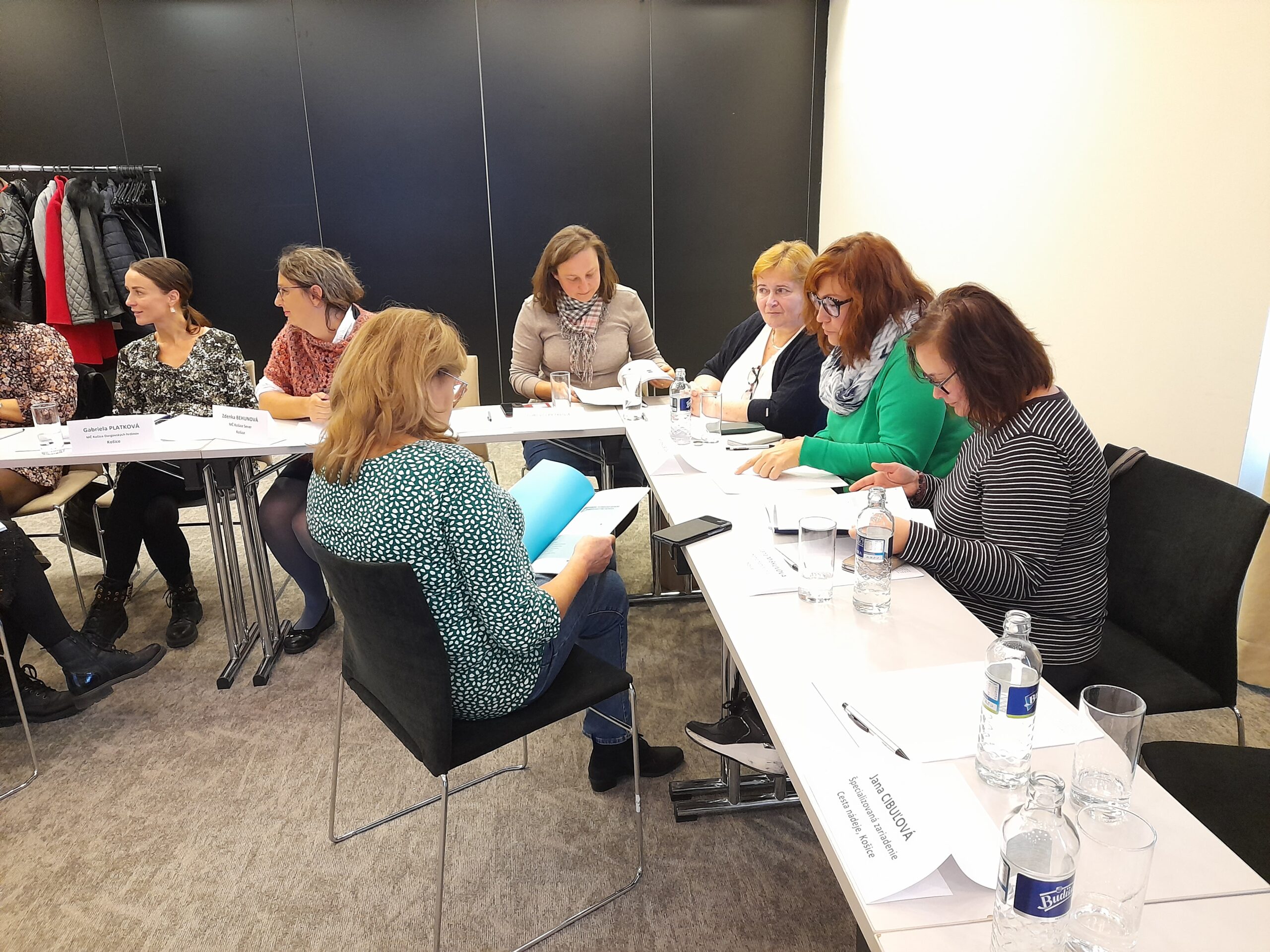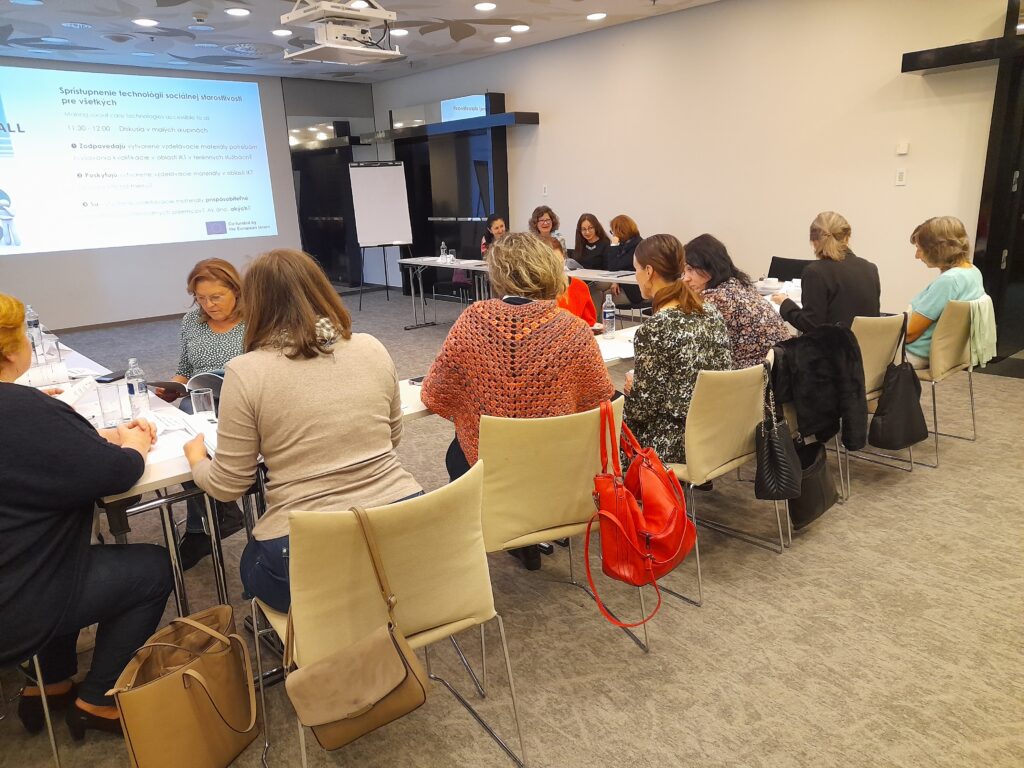28. 10. 2024
The agenda of multiplier event was structured to contribute to the pleasant working atmosphere of the event. Upon arrival and registration, participants were able to greet each other and get acquainted over a small refreshment. Everyone was able to choose a seat and then received a name tag. At the beginning we thanked the participants for accepting the invitation. We informed them that this is a dissemination activity within the framework of the SociALL project, which is intended for stakeholdersin the field of social and health care. Therefore, all providers of home care services in Kosice, home care agencies and other selected organisations that have some direct or indirect connection with these outreach services were invited to this meeting.

Participants were then asked to briefly introduce the organisation they represent and their job position in the organisation. Some participants also mentioned their previous work experiences in the field of social or health outreach services. The starting point for obtaining feedback from the participants was the presentation on the SociALL project outputs and the possibilities of their use in practice and research. At the beginning of the presentation, the project consortium was introduced to give the participants more information about the organisations involved in the project outputs development. Each organisation was introduced from a formal point of view and what their main areas of activity are. The selected outputs were presented to the participants according to the project work packages. From WP2 we reported on the implementation of desk research and online survey. We particularly highlighted the ICT training needs identified within the survey. In WP3 we presented the preparation of SociALL Training Package and highlighted its availability in Slovak language on the project website. We continued with information on the implementation of the pilot trainings in each country. We described in more detail the pilot training in Slovakia in terms of preparation, implementation and lessons learned. We presented the results of the joint evaluation of the impact of all pilot trainings.
We then invited participants for small groups discussion based on three questions:
1. Do the developed training materials meet the needs of ICT skills development in social and health services fields?
2. Do the developed ICT training materials provide tailor-made solutions for field social and health services?
3. Are the training materials developed adaptable to other potential beneficiaries? If yes, which ones?
The participants had printed SociALL Training Package at their disposal throughout the meeting and had the opportunity to view the materials in more detail during the discussion session. At the end of the discussion, the different groups shared their answers and some of them gave us their answers in written form. Participants agreed that the SociALL Training Package is clearly written and has appropriate content for the needs of staff in outreach care services, including managerial positions. It is suitable for both group learning and individual self-study. At the same time, the SociALL Training Package, especially the general part, is also adaptable and applicable to other target groups (e.g. clients such as the elderly, people in assisted living). However, the participants stressed that in current conditions the main barriers to meeting the needs of training and practice are: material and technical equipment (computers, tablets, smartphones, etc.); financial resources for the implementation of ICT training; time capacity of employees in field services (impossibility of training in working time and not covering the costs of training from basic funding sources), and the lack of legislation in the field of further training of home care workers. We thanked the participants for their active involvement and asked them to provide feedback also via an online evaluation form. Thirteen participants filled the evaluation forms with the following feedback: 100 % assessed organization of the event (venue, space availability, etc.); the relevance of the event topic; interaction with the inviting organization; as well as interaction with other participants at a “very good” level.

The participants liked the most: information networking, discussions about similar problems in the given area, new information about the SociALL project and exchange of experiences, the possibility of interaction, conversations, exchange of experiences, seeing each other and sharing with each other. They appreciated the organization of the event and the human approach. The participants would not change anything at the event, they rated the format of the meeting and the composition of the participants as excellent and beneficial. They would welcome similar meetings and new information in the field of ICT more often. As a final part of multiplier event a lunch was served for additional networking, strengthening connections among stakeholders, and sharing views on potential future partnerships.

